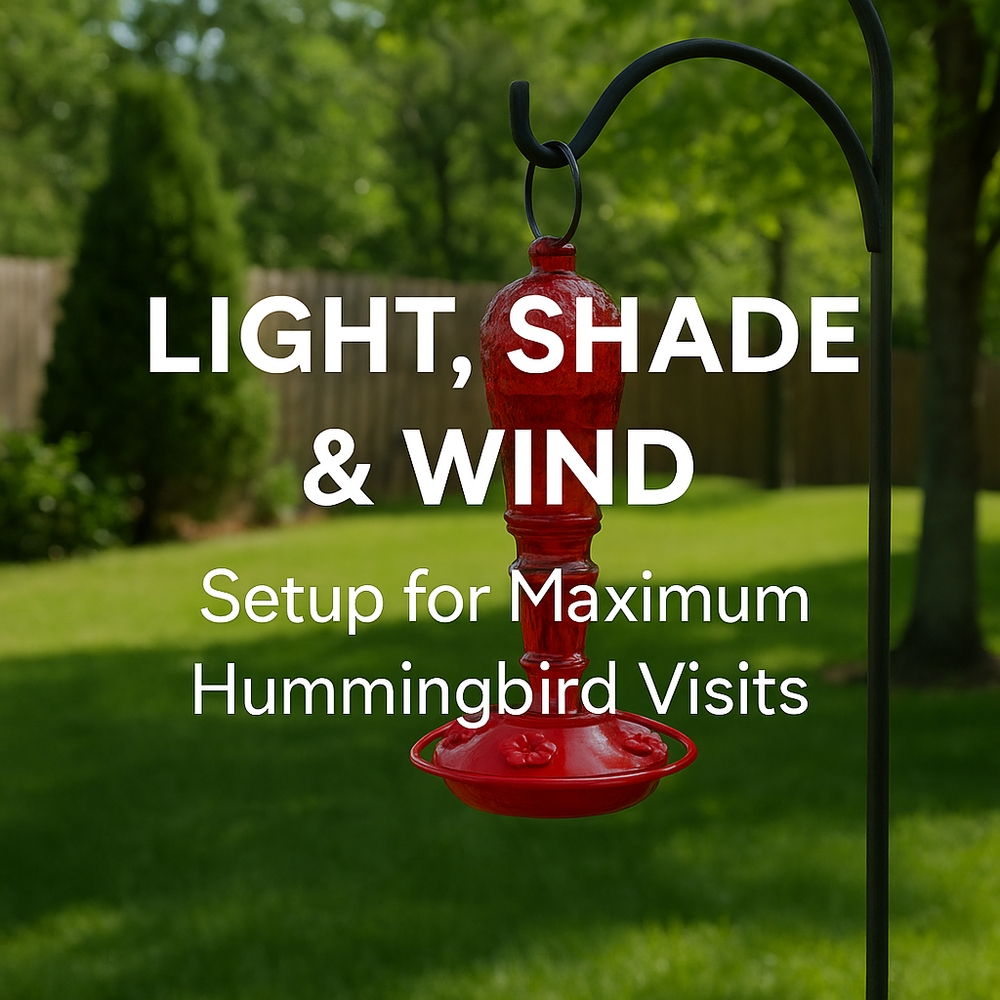Published
- 2 min read
Light, Shade & Wind: Where to Hang Your Feeder?

☀️ Light, Shade & Wind: Where to Hang Your Feeder?
You can have the best feeder and the freshest nectar, but if you hang it in the wrong spot, the birds won’t touch it.
Hummingbirds are picky. They don’t like eating in a wind tunnel, and they hate hot, fermented soup.
Here is the guide to finding the “Goldilocks Zone” in your yard.
☀️ The Sun Dilemma
- Too Much Sun: Boils the nectar. Fermentation starts in hours. Plastic feeders fade and crack.
- Too Much Shade: Hard for you to see the birds. Sometimes too dark for them to spot the color.
- The Sweet Spot: Morning Sun, Afternoon Shade.
- Place the feeder on the East side of your house. It gets the gentle morning light (warming the nectar slightly after a cold night) but is shaded during the scorching 2 PM heat.
💨 The Wind Factor
Hummingbirds are light. Strong gusts buffet them around.
- The Problem: A swinging feeder spills nectar. Spilled nectar attracts ants.
- The Fix: Hang feeders near a Windbreak. A wall, a fence, or a dense shrub blocks the prevailing wind.
- The Tool: Use a Weather Guard / Baffle above the feeder. It acts like an umbrella against rain and wind.
🌧️ Rain Protection
Nectar is already mostly water. If rain gets into the feeder ports, it dilutes the sugar.
- Why it matters: If the ratio drops below 4:1, the birds stop visiting because they aren’t getting enough energy.
- The Fix: A Feeder Dome protects the ports from downpours.
🧭 Placement Cheat Sheet
| Condition | Best Spot | Why? |
|---|---|---|
| Sun | East-Facing | Avoids hot afternoon fermentation. |
| Wind | Near a Wall/Fence | Prevents swinging and spilling. |
| Height | 5 Feet High | Eye-level for you, safe from cats. |
| Privacy | 10ft from Windows | Close enough to see, far enough to feel safe. |
Find the right spot, and your feeder will become the busiest restaurant in town.
Happy Hanging!